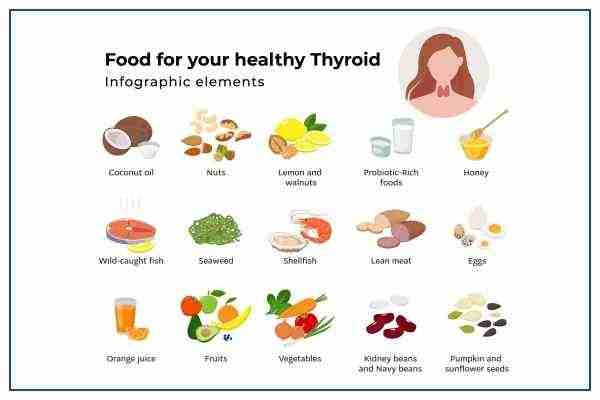When it comes to maintaining optimal thyroid health, diet plays a crucial role. The thyroid gland is responsible for regulating metabolism, energy levels, and overall hormone balance in the body. By consuming the right nutrients and avoiding certain foods, you can support your thyroid function and prevent potential issues. In this article, we will discuss what to eat and what to avoid to keep your thyroid healthy.
The Role of Nutrition in Thyroid Health
Before diving into specific foods, it’s important to understand how nutrition impacts thyroid health. The thyroid gland relies on various nutrients to produce thyroid hormones, including iodine, selenium, zinc, and iron. Without an adequate supply of these nutrients, the thyroid may struggle to function optimally, leading to symptoms such as fatigue, weight gain, and mood changes.
What to Eat
1. Iodine-Rich Foods
Iodine is a crucial nutrient for thyroid health, as it is a key component of thyroid hormones. Foods rich in iodine include seaweed, fish, dairy products, and eggs. Adding these foods to your diet can help ensure that your thyroid has an ample supply of this essential nutrient.
2. Selenium-Rich Foods
Selenium is another important nutrient for thyroid function, as it helps to convert inactive thyroid hormones into their active form. Good sources of selenium include Brazil nuts, seafood, and organ meats. Including these foods in your diet can support optimal thyroid health.
3. Zinc-Rich Foods
Zinc plays a role in thyroid hormone production and regulation. Foods high in zinc include red meat, poultry, nuts, and seeds. By incorporating these zinc-rich foods into your diet, you can help support your thyroid function.
4. Iron-Rich Foods
Iron is essential for the production of thyroid hormones. Good sources of iron include red meat, poultry, beans, and fortified cereals. Ensuring an adequate intake of iron can help maintain optimal thyroid function.
What to Avoid
1. Processed Foods
Processed foods are often high in sugar, unhealthy fats, and artificial additives, which can negatively impact thyroid health. These foods can also interfere with nutrient absorption, further compromising thyroid function. Limiting your intake of processed foods is essential for supporting thyroid health.
2. Soy-Based Products
Soy contains compounds known as goitrogens, which can interfere with thyroid hormone production and absorption. While occasional consumption of soy-based products is unlikely to cause issues, avoiding excessive amounts of soy can help maintain optimal thyroid function.
3. Cruciferous Vegetables
Cruciferous vegetables like broccoli, cauliflower, and kale contain goitrogens that can impact thyroid health when consumed in large amounts. Cooking these vegetables can help reduce their goitrogenic effects, making them safer for consumption in moderation.
4. Excessive Caffeine
Excessive caffeine consumption can disrupt thyroid function by affecting hormone balance and interfering with nutrient absorption. Limiting your intake of caffeinated beverages like coffee and energy drinks can help support thyroid health.
Conclusion
By paying attention to your diet and incorporating the right nutrients while avoiding certain foods, you can support your thyroid health and prevent potential issues. Prioritizing iodine-rich foods, selenium-rich foods, zinc-rich foods, and iron-rich foods can help ensure that your thyroid has the necessary nutrients for optimal function. Additionally, avoiding processed foods, soy-based products, cruciferous vegetables, and excessive caffeine can help maintain a healthy thyroid. By making informed dietary choices, you can promote overall thyroid health and well-being.
Remember, always consult with a healthcare professional or registered dietitian before making significant changes to your diet, especially if you have existing thyroid issues or concerns.
